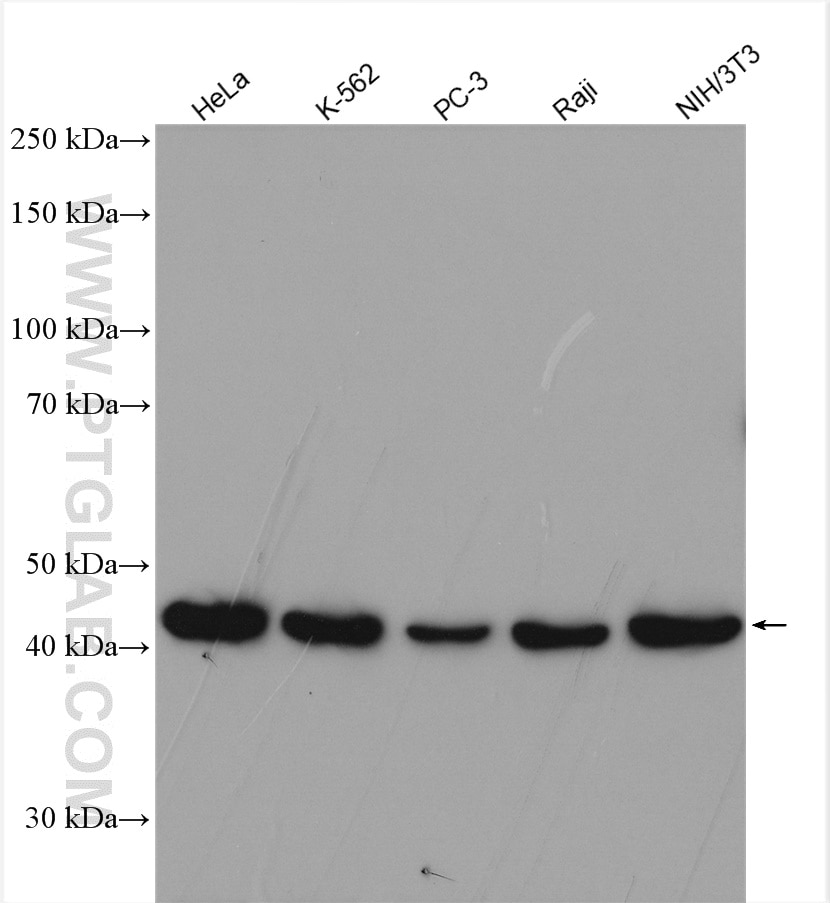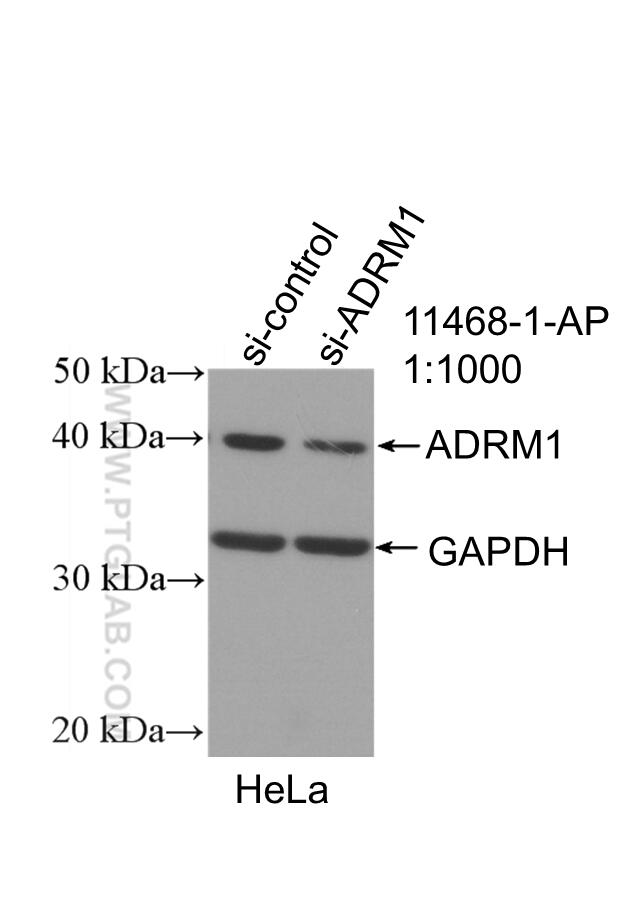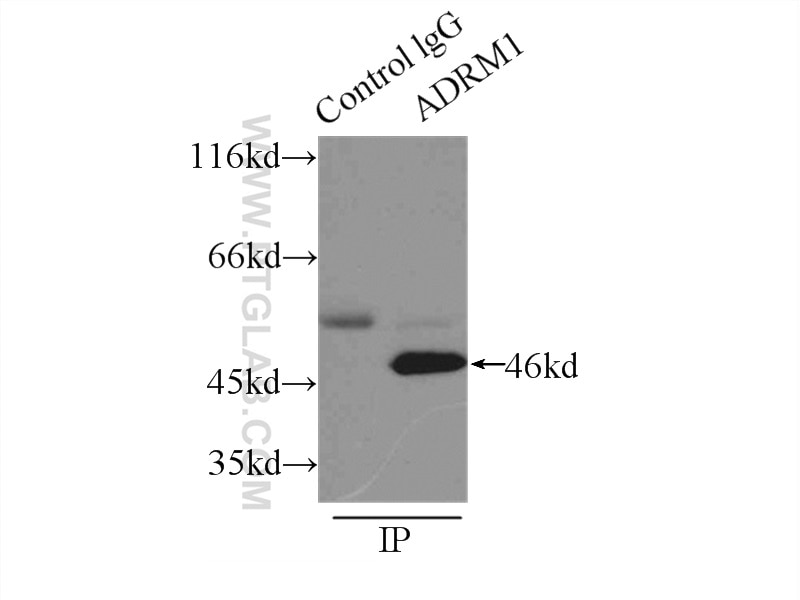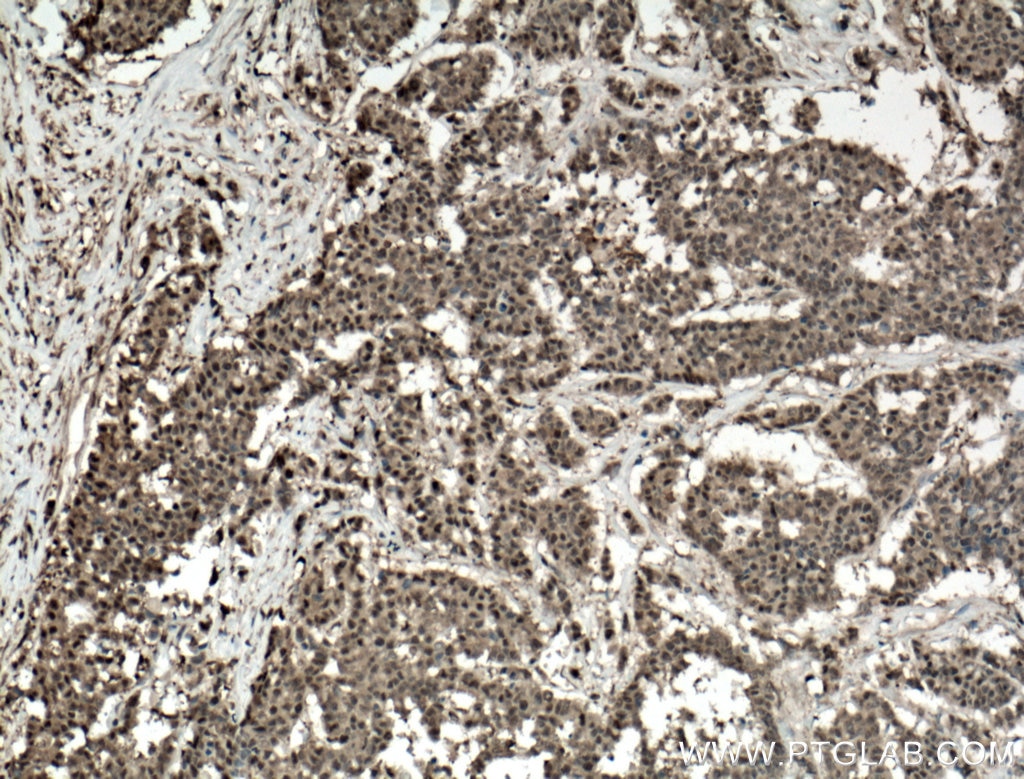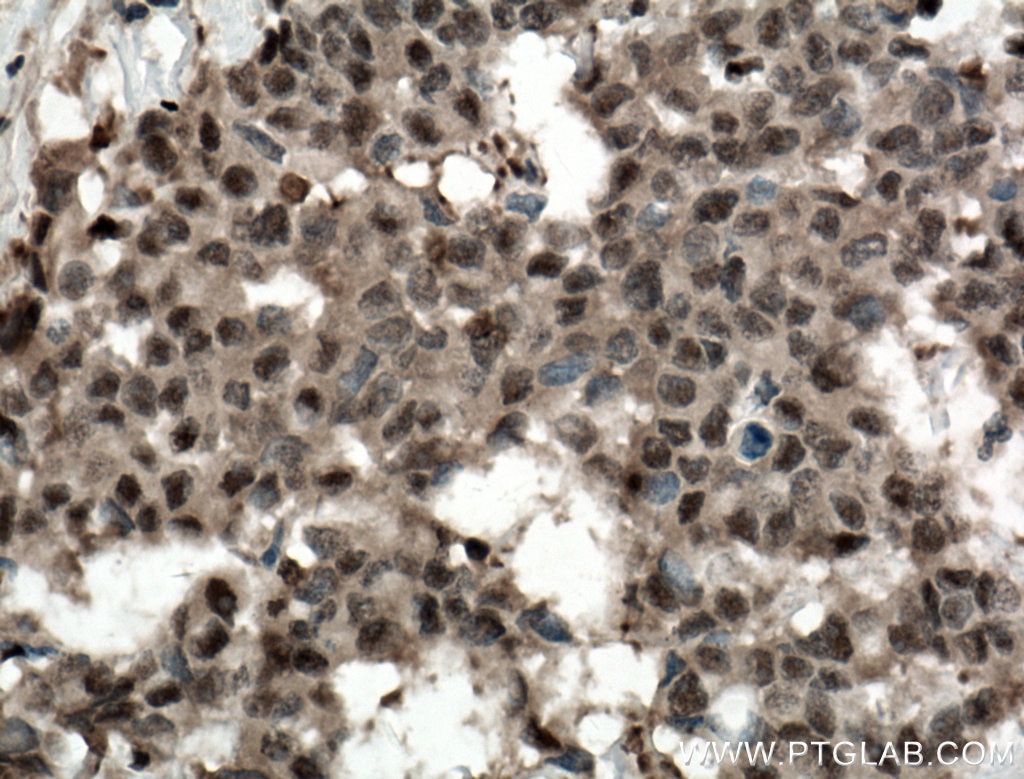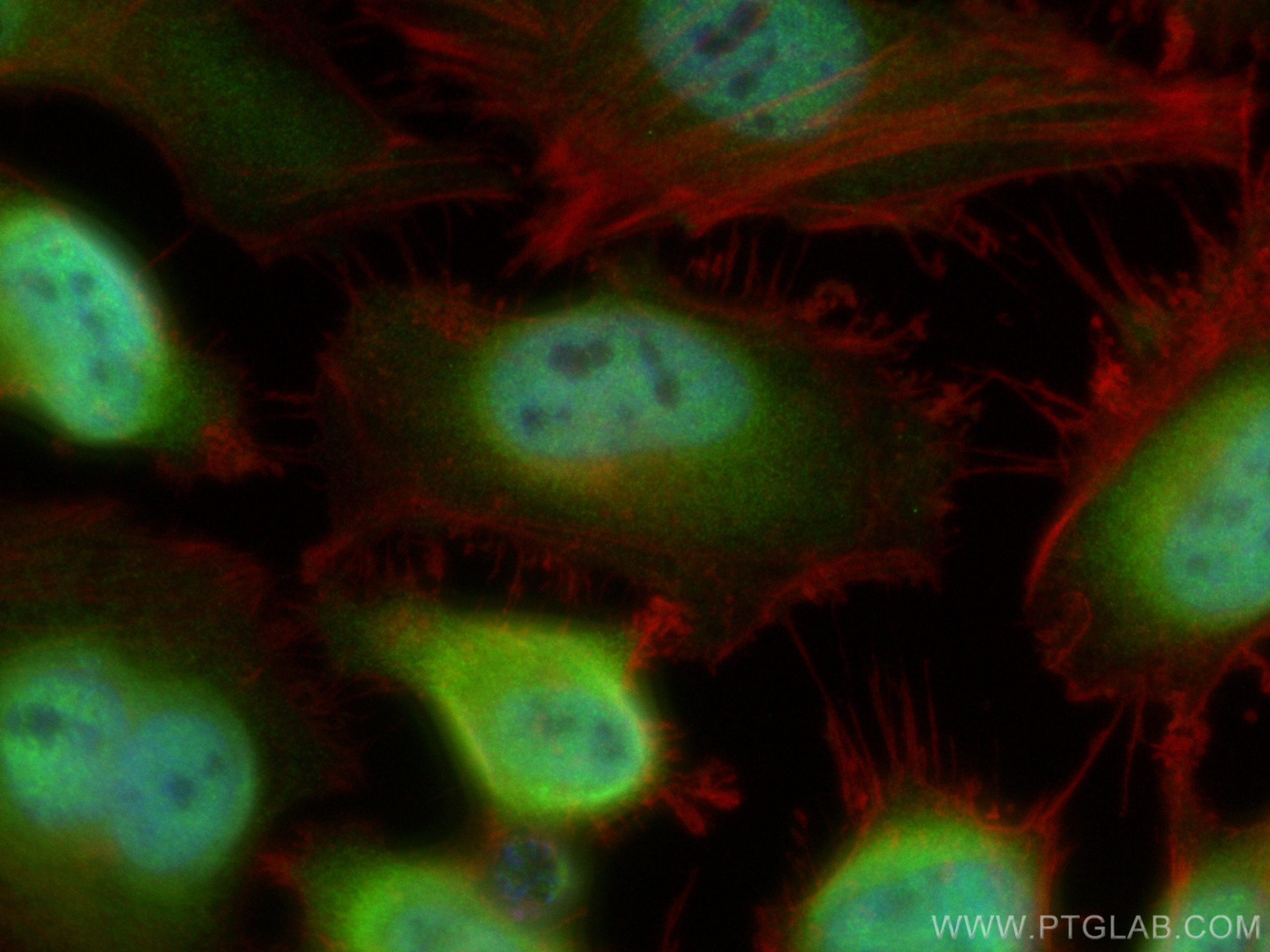Tested Applications
| Positive WB detected in | HeLa cells, K-562 cells, PC-3 cells, Raji cells, NIH/3T3 cells |
| Positive IP detected in | mouse testis tissue |
| Positive IHC detected in | human colon cancer tissue Note: suggested antigen retrieval with TE buffer pH 9.0; (*) Alternatively, antigen retrieval may be performed with citrate buffer pH 6.0 |
| Positive IF/ICC detected in | HeLa cells |
Recommended dilution
| Application | Dilution |
|---|---|
| Western Blot (WB) | WB : 1:1000-1:5000 |
| Immunoprecipitation (IP) | IP : 0.5-4.0 ug for 1.0-3.0 mg of total protein lysate |
| Immunohistochemistry (IHC) | IHC : 1:50-1:500 |
| Immunofluorescence (IF)/ICC | IF/ICC : 1:200-1:800 |
| It is recommended that this reagent should be titrated in each testing system to obtain optimal results. | |
| Sample-dependent, Check data in validation data gallery. | |
Published Applications
| KD/KO | See 3 publications below |
| WB | See 6 publications below |
| IHC | See 5 publications below |
| IF | See 3 publications below |
| IP | See 1 publications below |
| CoIP | See 1 publications below |
Product Information
11468-1-AP targets ADRM1 in WB, IHC, IF/ICC, IP, CoIP, ELISA applications and shows reactivity with human, mouse, rat samples.
| Tested Reactivity | human, mouse, rat |
| Cited Reactivity | human, mouse |
| Host / Isotype | Rabbit / IgG |
| Class | Polyclonal |
| Type | Antibody |
| Immunogen |
CatNo: Ag1997 Product name: Recombinant human ADRM1 protein Source: e coli.-derived, PGEX-4T Tag: GST Domain: 1-407 aa of BC017245 Sequence: MTTSGALFPSLVPGSRGASNKYLVEFRAGKMSLKGTTVTPDKRKGLVYIQQTDDSLIHFCWKDRTSGNVEDDLIIFPDDCEFKRVPQCPSGRVYVLKFKAGSKRLFFWMQEPKTDQDEEHCRKVNEYLNNPPMPGALGASGSSGHELSALGGEGGLQSLLGNMSHSQLMQLIGPAGLGGLGGLGALTGPGLASLLGSSGPPGSSSSSSSRSQSAAVTPSSTTSSTRATPAPSAPAAASATSPSPAPSSGNGASTAASPTQPIQLSDLQSILATMNVPAGPAGGQQVDLASVLTPEIMAPILANADVQERLLPYLPSGESLPQTADEIQNTLTSPQFQQALGMFSAALASGQLGPLMCQFGLPAEAVEAANKGDVEAFAKAMQNNAKPEQKEGDTKDKKDEEEDMSLD Predict reactive species |
| Full Name | adhesion regulating molecule 1 |
| Calculated Molecular Weight | 407 aa, 42 kDa |
| Observed Molecular Weight | 46 kDa |
| GenBank Accession Number | BC017245 |
| Gene Symbol | ADRM1 |
| Gene ID (NCBI) | 11047 |
| RRID | AB_2273873 |
| Conjugate | Unconjugated |
| Form | Liquid |
| Purification Method | Antigen affinity purification |
| UNIPROT ID | Q16186 |
| Storage Buffer | PBS with 0.02% sodium azide and 50% glycerol, pH 7.3. |
| Storage Conditions | Store at -20°C. Stable for one year after shipment. Aliquoting is unnecessary for -20oC storage. 20ul sizes contain 0.1% BSA. |
Background Information
The 26S proteasome is a key component of the ubiquitin-proteasome system, a process responsible for the majority of cellular protein degradation. hRpn13 (also termed ADRM1 or GP110) is a novel 46-kDa subunit of its 19S regulatory complex. hRpn13 binds directly to the proteasome-associated deubiquitinating enzyme, UCH37, and enhances its isopeptidase activity. Overexpression of hRpn13 promotes the activity of the ubiquitin-proteasome system and modulates the influence of osteoblasts on osteoclasts by controlling the stability of regulatory proteins in osteoblasts.
Protocols
| Product Specific Protocols | |
|---|---|
| IF protocol for ADRM1 antibody 11468-1-AP | Download protocol |
| IHC protocol for ADRM1 antibody 11468-1-AP | Download protocol |
| IP protocol for ADRM1 antibody 11468-1-AP | Download protocol |
| WB protocol for ADRM1 antibody 11468-1-AP | Download protocol |
| Standard Protocols | |
|---|---|
| Click here to view our Standard Protocols |
Publications
| Species | Application | Title |
|---|---|---|
Exp Hematol Oncol Downregulation of pro-surfactant protein B contributes to the recurrence of early-stage non-small cell lung cancer by activating PGK1-mediated Akt signaling
| ||
Proc Natl Acad Sci U S A Dendritic spinopathy in transgenic mice expressing ALS/dementia-linked mutant UBQLN2. | ||
Oncogene The degradation of p53 and its major E3 ligase Mdm2 is differentially dependent on the proteasomal ubiquitin receptor S5a. | ||
Genes Chromosomes Cancer Comprehensive analysis of 20q13 genes in ovarian cancer identifies ADRM1 as amplification target. |

